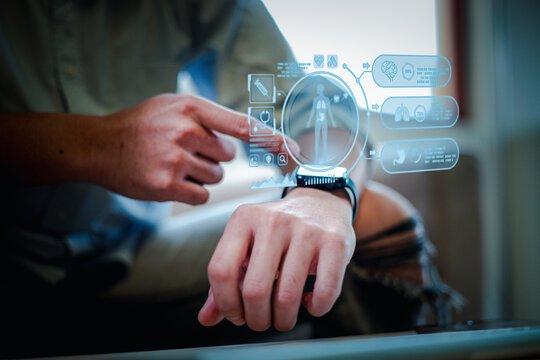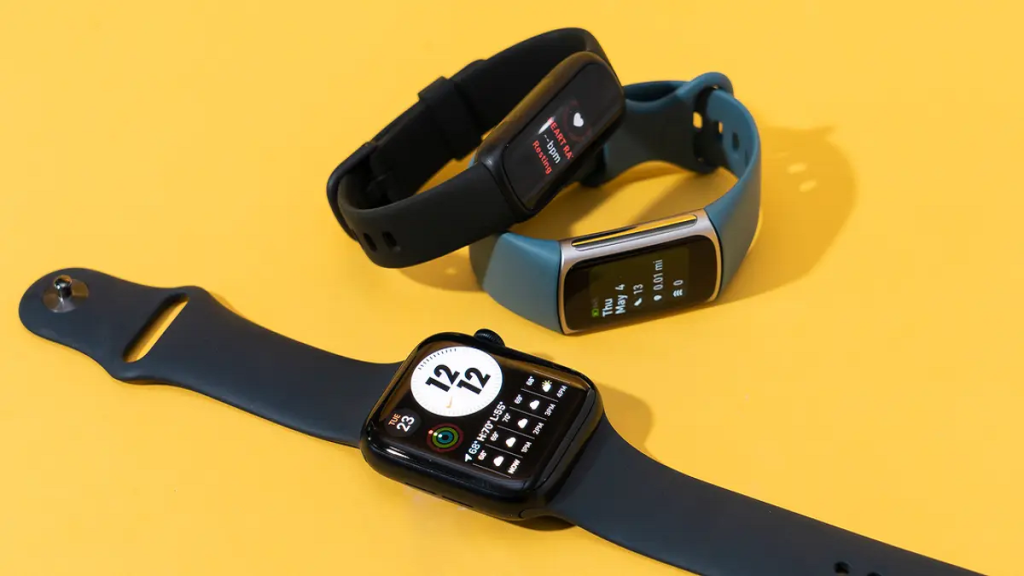Wearable technology is becoming widely used by people to monitor their fitness and overall health. A fitness tracker is a gadget that monitors your orientation, motion, and rotation using sensors. The benefits of fitness trackers gather information and transform it into steps, calories burned, sleep quality, and overall daily activity. A sensor known as an “altimeter” is included in certain trackers to monitor your height and count the stairs you’ve climbed.
It is easy for a fitness tracker to distinguish between spinning and jogging. The tracker’s alarm serves as a reminder for a variety of tasks, including walking, standing, sleeping at the appropriate time, drinking enough water, and finishing the designated number of steps. Those who want to work toward particular fitness and health goals might find solutions with this equipment. Here are some applications and advantages of using a fitness tracker.
Why Fitness Trackers Are Becoming Popular

1. Enhanced Activity Awareness
One of the primary benefits of fitness trackers is their ability to provide users with real-time feedback on their physical activity levels. Most trackers monitor steps taken, calories burned, distance traveled, and active minutes throughout the day. This data cultivates a heightened awareness of one’s daily movement, encouraging individuals to integrate more physical activity into their routines.
For instance, seeing how many steps you have taken can motivate you to take the stairs instead of the elevator or to go for a walk during your lunch break. By making activity levels visible, fitness trackers can help users set achievable goals and gradually increase their physical activity. Many users find that simply tracking their movements can lead to a significant increase in daily activity levels.
2. Goal Setting and Progress Tracking
Fitness trackers facilitate goal setting by allowing users to define personal fitness targets. Whether it’s reaching a specific number of steps per day, completing a certain amount of exercise each week, or achieving a weight loss goal, fitness trackers provide a framework for users to work towards. Many devices enable users to set short-term and long-term goals, creating a structured approach to fitness.
Moreover, the ability to track progress over time helps users stay motivated. Seeing how far one has come in terms of steps taken or weight loss reinforces the effort put into achieving these goals. This positive reinforcement can be critical for sustaining motivation in the long run.
3. Encouragement of Healthy Habits
One of the advantages of fitness trackers is that they can promote the development of healthy habits by reminding users to stay active and make better lifestyle choices. Many devices come with features such as reminders to stand up after long periods of inactivity, notifications for scheduled workouts, or alerts to drink water.
These nudges can significantly impact users’ daily routines, prompting them to make small but meaningful changes. Over time, these small changes can lead to the formation of lasting healthy habits. For instance, a user who starts taking short walks during breaks may eventually establish a regular walking routine, contributing to overall fitness.
4. Social Interaction and Community Support
Many fitness trackers incorporate social features that allow users to connect with friends or join communities. This social aspect can provide accountability and support, making fitness more enjoyable. Users can share their achievements, compete in challenges, or simply encourage one another along their fitness journeys.
The sense of community fostered by these interactions can be incredibly motivating. Engaging with others who have similar fitness goals can help individuals stay committed and inspired, making the journey toward better health a shared experience.
5. Comprehensive Health Monitoring
One of the benefits of fitness trackers is that they are equipped with advanced sensors that allow for comprehensive health monitoring beyond just activity levels. Many devices can track heart rate, sleep patterns, and even stress levels. This data provides users with a more holistic view of their health, allowing them to identify patterns and make informed decisions.
For instance, monitoring sleep can help users understand how their physical activity affects their rest quality. Similarly, tracking heart rate during workouts can provide insights into cardiovascular health and fitness levels, helping users optimize their exercise routines.
6. Injury Prevention and Rehabilitation
For those recovering from injuries or managing chronic conditions, fitness trackers can play a crucial role in rehabilitation. By monitoring activity levels and providing real-time feedback, users can ensure they are not overexerting themselves, which is vital for recovery. Many trackers also allow users to set specific limits, helping them avoid pushing their bodies beyond what is safe.
Additionally, fitness trackers can assist healthcare providers in monitoring patients’ progress. Sharing data with medical professionals can provide valuable insights into a patient’s activity levels and recovery status, leading to more personalized and effective rehabilitation plans.
7. Motivation Through Gamification
One of the advantages of fitness trackers is that they often incorporate gamification elements, turning physical activity into a game. Features such as earning badges, competing in challenges, and tracking personal bests create a fun and engaging way to stay active. This approach can significantly enhance motivation, especially for those who might find traditional exercise routines monotonous.
The thrill of competition, whether against oneself or others, can encourage users to push their limits and explore new activities. Gamification helps transform fitness from a chore into a rewarding experience, promoting long-term engagement.
8. Integration with Other Technologies
Fitness trackers can seamlessly integrate with other technologies and apps, enhancing their functionality. Many devices sync with smartphones and health apps, allowing users to analyze their data in greater detail. This integration can provide a more comprehensive view of one’s health and fitness journey, as users can track nutrition, hydration, and mental well-being alongside physical activity.
Additionally, the ability to connect with smart home devices can streamline fitness routines. For example, users can set reminders to work out or create an environment conducive to exercise through their smart speakers or home automation systems.
9. Encouraging Lifestyle Changes
Ultimately, the cumulative effects of using a fitness tracker can lead to significant lifestyle changes. As users become more aware of their activity levels, set goals, and monitor their health, they are often inspired to make broader changes to their lifestyles. This can include adopting healthier eating habits, prioritizing mental well-being, and finding new ways to stay active.
The impact of these changes can be profound, resulting in improved physical health, enhanced mental well-being, and a greater overall quality of life. Fitness trackers serve as catalysts for these transformations, empowering users to take control of their health journeys.
Wrapping Up
There are several benefits of fitness trackers that extend beyond mere activity tracking. They enhance awareness of physical activity, facilitate goal setting, promote healthy habits, and foster community support.
Additionally, they provide comprehensive health monitoring, assist in injury prevention, and motivate users through gamification. With their ability to integrate with other technologies and encourage significant lifestyle changes, fitness trackers are invaluable tools for anyone looking to improve their health and well-being.
As we continue to navigate an increasingly digital world, the role of fitness trackers in promoting physical health and wellness is likely to grow. Embracing this technology can lead to a more active, informed, and healthier society, making the pursuit of fitness not just a personal journey but a collective movement toward better health for all.
FAQ
Q: What health benefits might fitness trackers offer?
A: You may try a fitness tracker. According to studies, if you set a heart-smart daily target, using a fitness tracker—a device that measures your movement, like a standard pedometer or other wearable gadget, or a smartphone app—consistently can raise your daily step count by more than a mile.
Q: What is displayed on a fitness tracker?
A: Wearable technology that tracks your physical activity and gives you information on your fitness level is called a fitness tracker. It monitors a number of variables, including heart rate, sleep habits, distance traveled, steps taken, and calories burned.
Q: Are GPS-enabled fitness trackers there?
A: Fitness trackers may have the following important features: GPS features: A fitness tracker that uses Global Position System (GPS) monitoring can provide information such as elevation, speed, mileage, and location.







